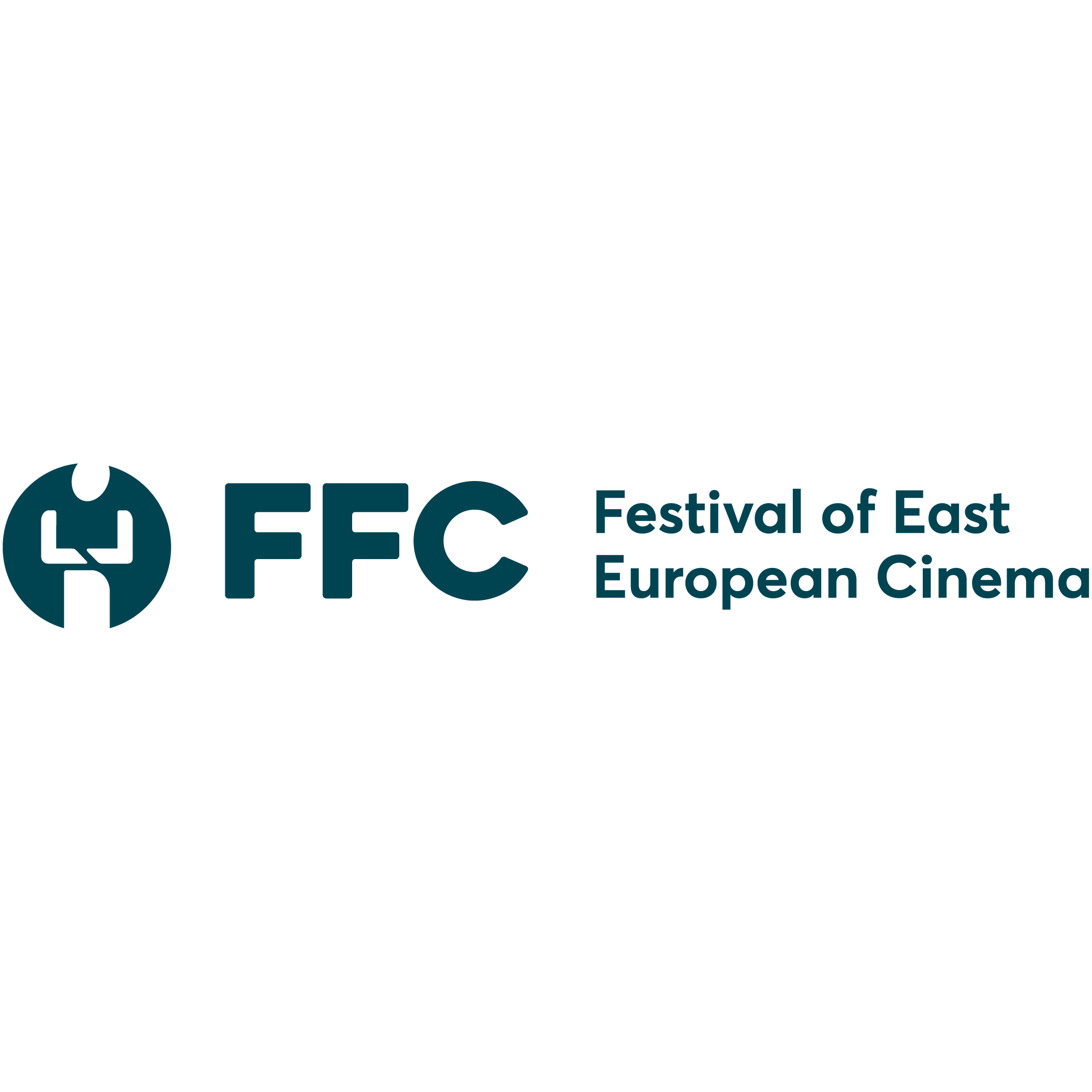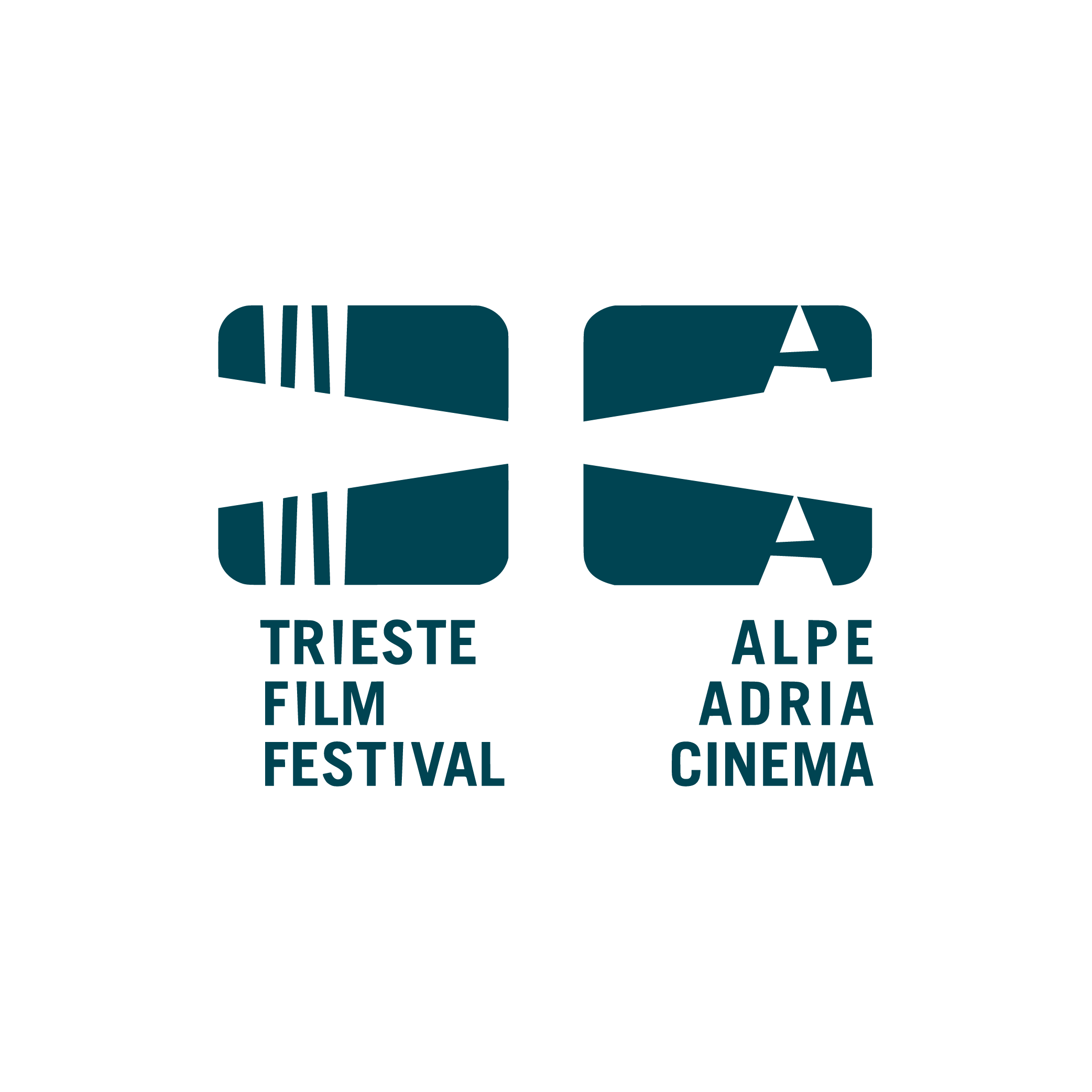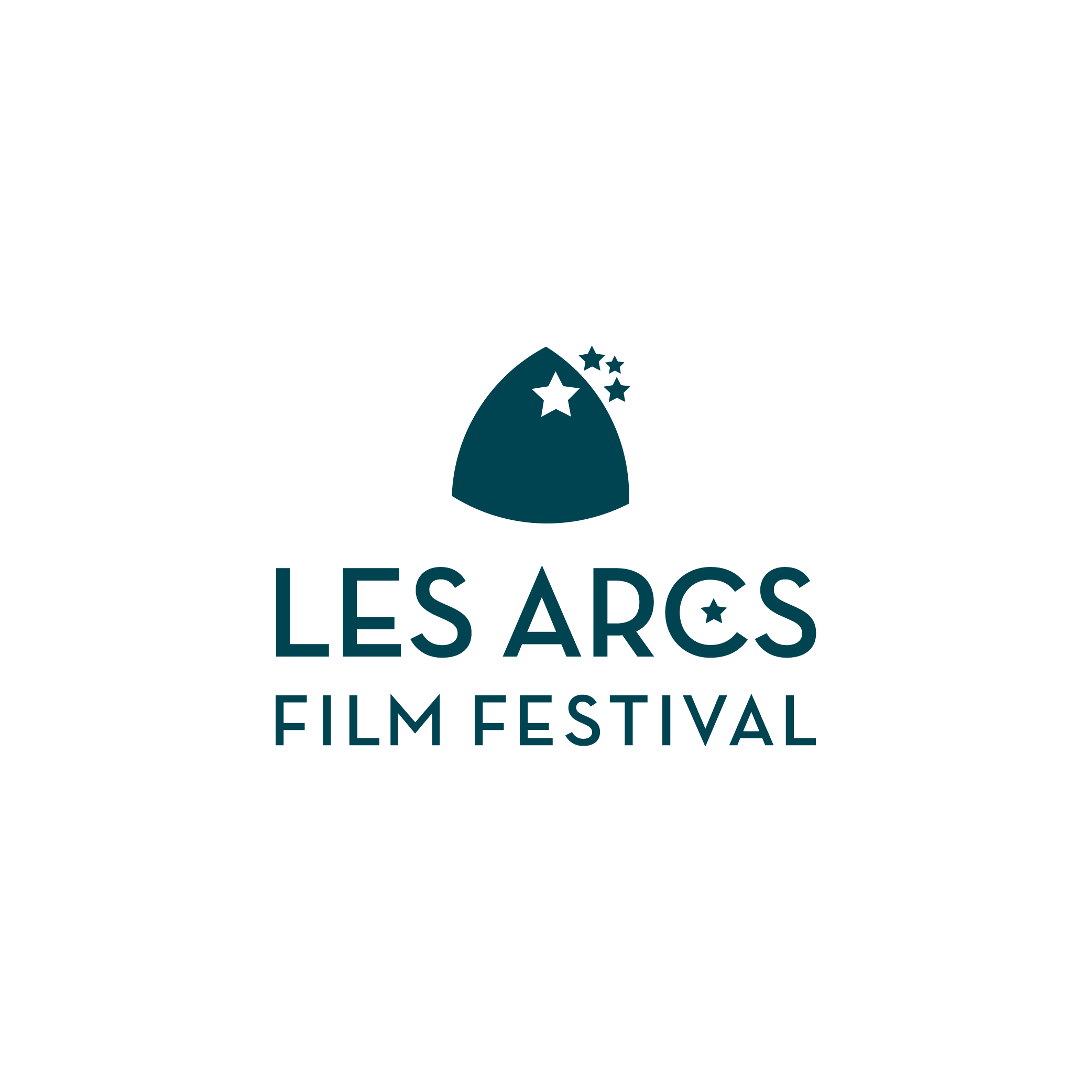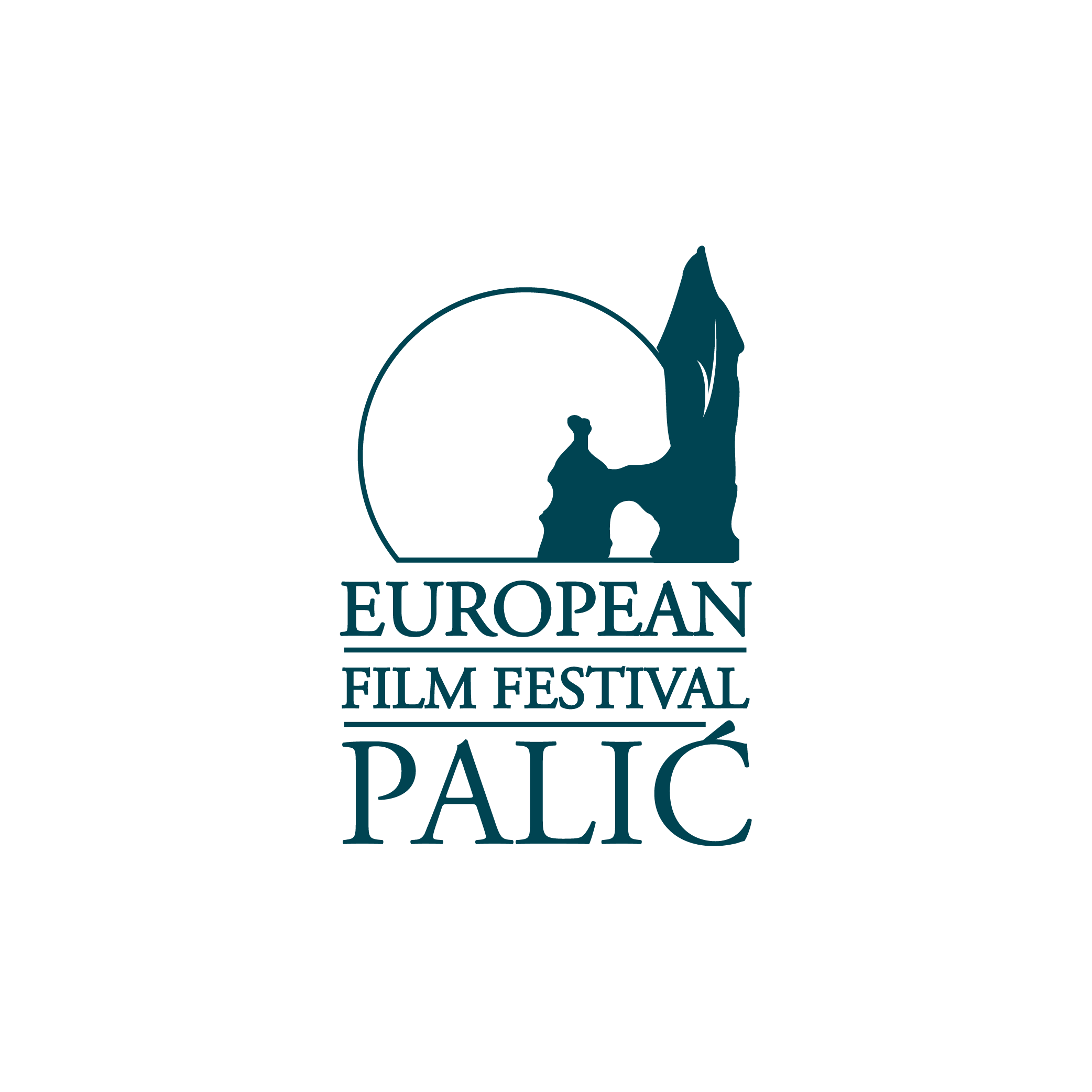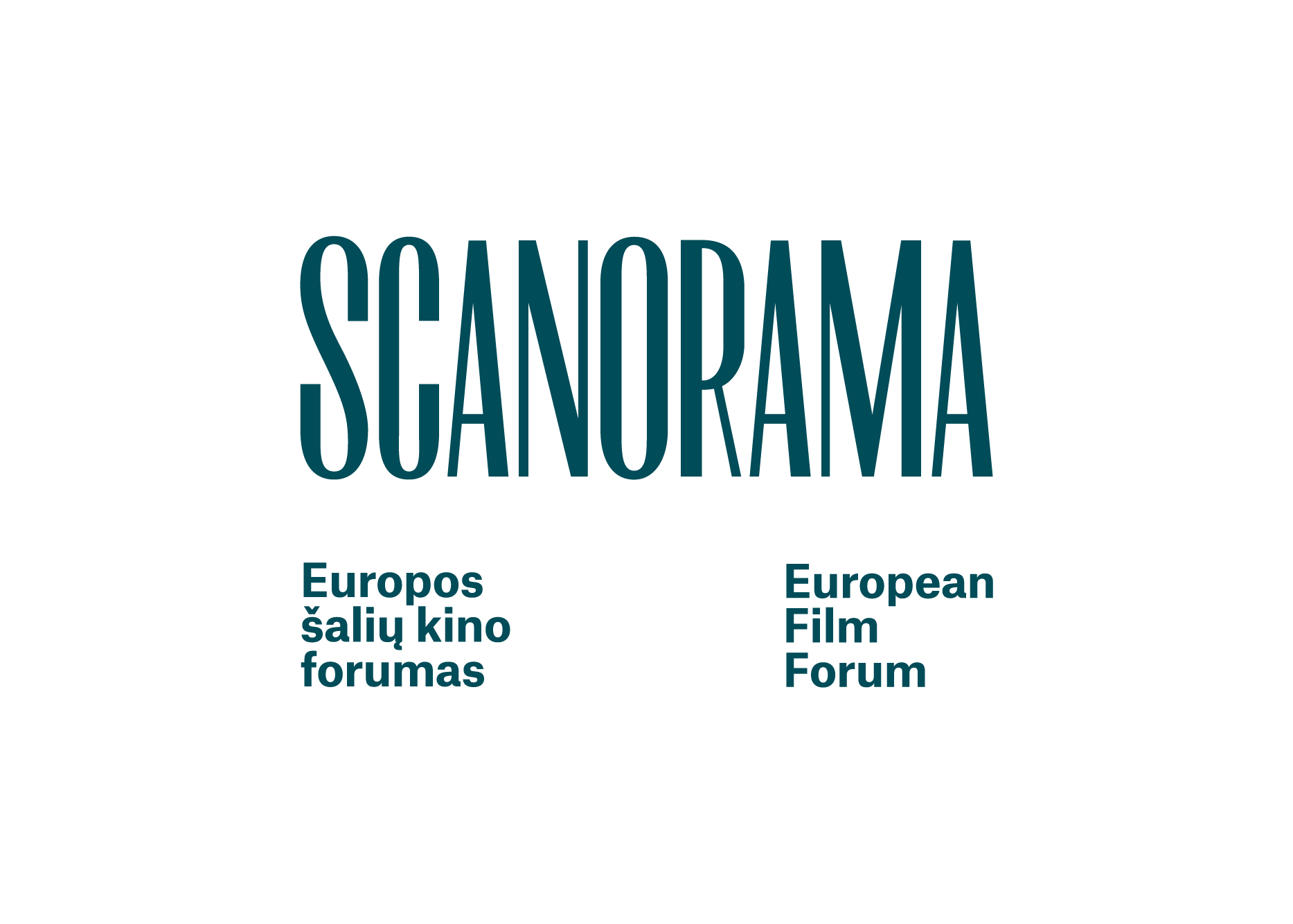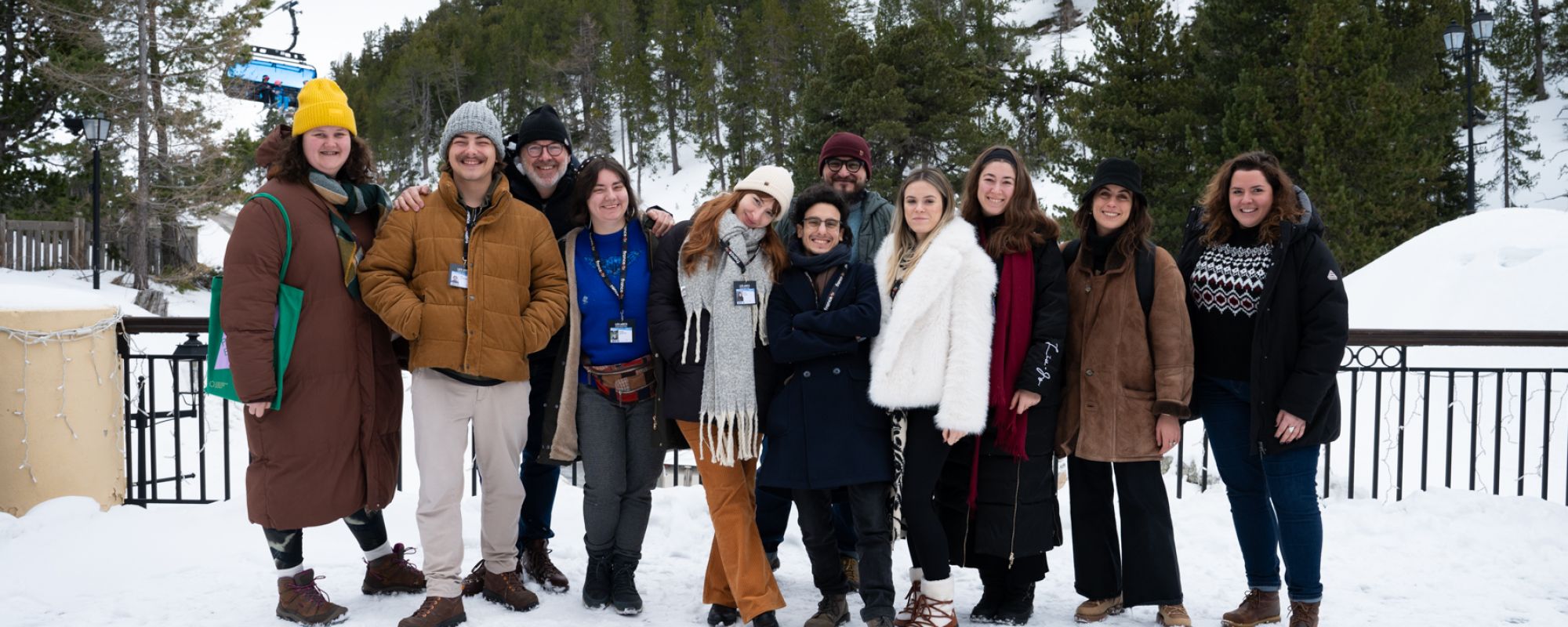
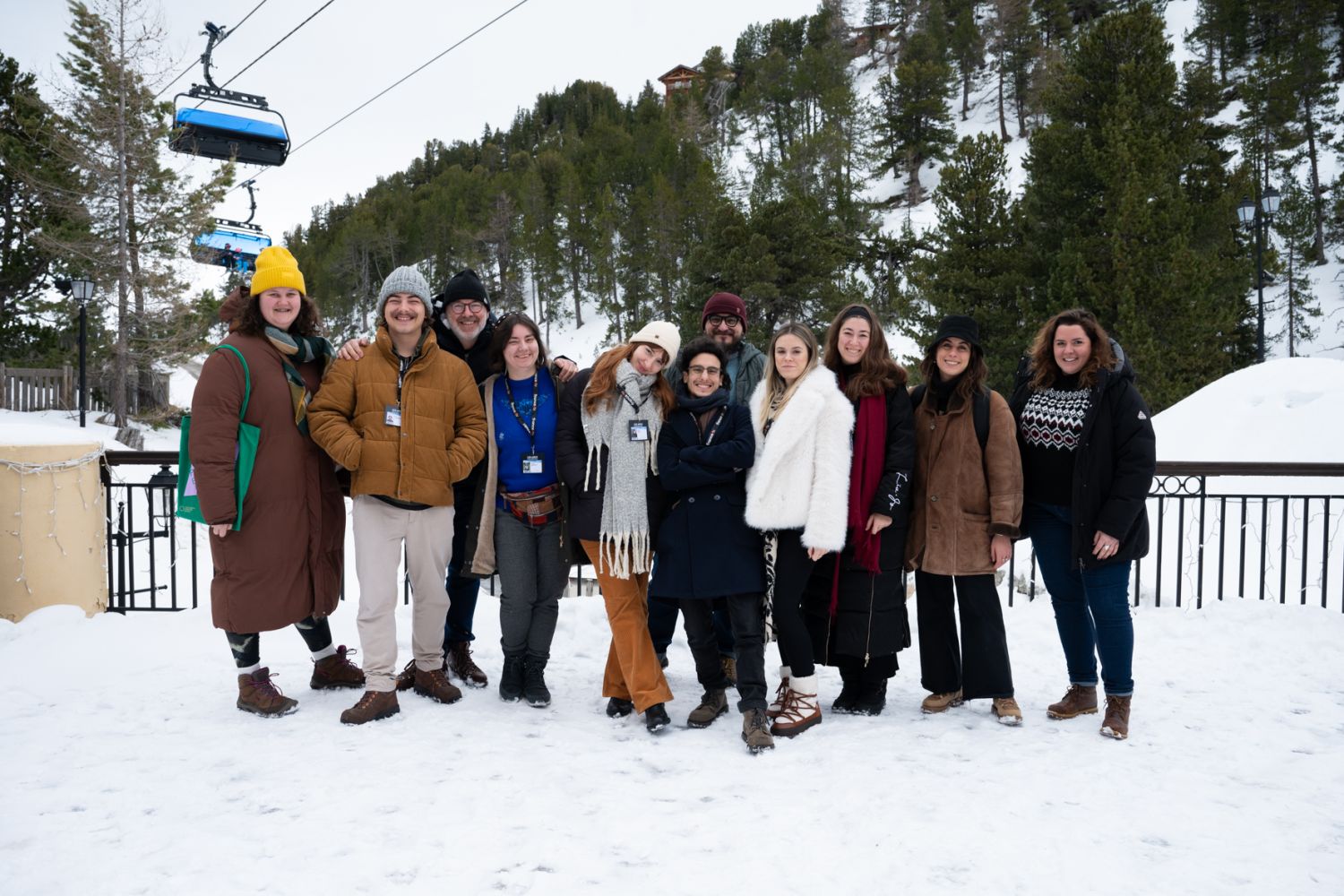
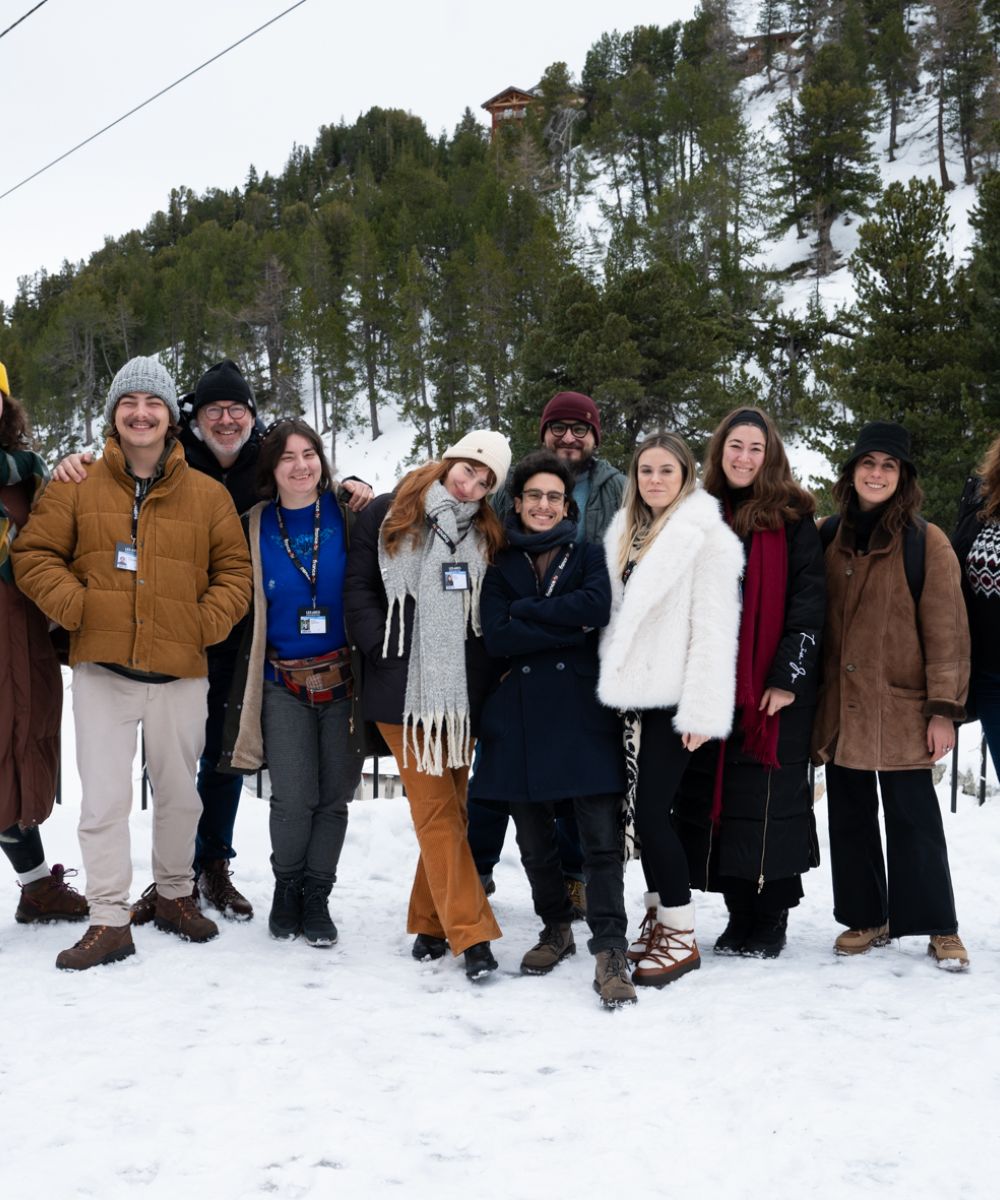
12
24
NEWS
Lab of Festival Journalism | Film Reviews from Les Arcs Film Festival
The 16th edition of the Les Arcs Film Festival (December 13 to 21, 2024) hosted the Lab of Festival Journalism, where 6 young European journalists honed their skills through screenings, workshops, and hands-on reporting. Here are the reviews and articles from the participants!
Peacock
A film by Bernhard Wenger
Cast: Albrecht SCHUCH, Anton NOORI, Julia FRANZ RICHTER
Austria, Germany | 2024 | 103’
"Peacock" (Pfau – Bin ich echt?) is the debut film by the Austrian director Bernhard Wenger, showcased at this year’s 16 th edition of Les Arcs Film Festival. The film has previously been pitched at Talent Village of the same festival in 2018, and is now competing for the Crystal Arrow.
This satirical comedy follows Matthias (Albrecht Schuch), a successful employee at a rent-a-friend agency that allows clients to hire someone to pose as a friend, fictional son, boyfriend, or other roles for any occasion. When his wife leves him, his life becomes a hectic mess, and a search for a meaning.
Read the full review, by Jovana Dinić, here
Toxic
A film by Saulė BLIUVAITĖ
Cast: Ieva RUPEIKAITĖ, Vesta MATULYTĖ, Giedrius SAVICKAS
Lithuania | 2024 | 99’
"Toxic" (Akiplėša), a Lithanian film directed and written by Saulė Bliuvaitė, was screened at the Les Arcs Film Festival as a part of the competition selection, followed by a Q&A session. The director’s feature debut premiered at the Locarno Film Festival where it won the Golden Leopard, and has since been circulating through acclaimed festivals all over the world.
The story is set in a small Lithuanian town, a sort of toxic environment, that many wish to escape. Marija and Kristina are 13-year old enemies-turned-friends who join a modeling agency hoping it would be their way out. Instead, this experience only further complicates their relationships with their bodies, pushing them to cross physical limits. Toxic is personal to Bliuvaitė, as it’s shot in her hometown Kaunas, a place that wasn’t far different than how it’s portrayed in the film. In her younger years, the idea of escaping for a better life was popular in the 90s Lithuania and its many blonde, tall and lean girls tried to fight for it by modeling. But modeling imposed beauty standards impossible to keep up with especially for teenagers whose bodies are constantly changing.
Read the full review, by Anja Šćepanović, here
When the Light Breaks
A film by Rúnar RÚNARSSON
Cast: Elín HALL, Mikael KAABER, Katla NJÁLSDÓTTIR
Icelandic | 2024 | 80’
Ljósbrot - Light and rupture, are the elements that Runar Runarsson perfectly captures in his latest feature film, When the Light Breaks. It’s an intricate sensory journey through a long Icelandic summer day that seems never-ending for Una (Elín Hall), the protagonist. In just 80 minutes, Runarsson manages to convey, minute by minute, the intensity of an unparalleled grief: the loss of someone you love.
The film follows a dramatic event in Una’s life, an art student who suddenly has to face the disappearance of Diddi, her schoolmate, bandmate, and the love she kept hidden from everyone’s eyes. The film opens with a vibrant, warm light radiating over the figures of the two lovers on a cliff, as they gaze at the calm sea. The meticulous work of DOP Sophia Olsson brilliantly infuses every scene with the emotion that drives the characters, guiding them through the delicate and tumultuous path they must face.
Read the full review, by Ailen Pasos, here
The Man Who Could Not Remain Silent
A film by Nebojša SLIJEPČEVIĆ
Cast: Goran BOGDAN, Alexis MANENTI, Dragan MICANOVIC
Croatian | 2024 | 14’
Short films are quite a unique and powerful medium in storytelling, offering filmmakers the opportunity to convey powerful narratives within a limited time frame. The strength of this format lies in its ability to communicate through what is left unsaid.
The Man Who Could Not Remain Silent masterfully uses the possibilities of short film to deliver a powerful, thought-provoking message in a concise and emotionally resonant way. The film is set on a train journeying from Belgrade, Serbia, to Bar, Montenegro. The ride takes a turn when police begin asking passengers for their IDs. The growing tension suggests. that the events take place during the 1990s, amidst the Balkan conflicts. What starts as a regular train ride quickly takes a tense turn when the police start asking passengers for their IDs, making it clear this isn't just a routine check.
Read the full review, by Renate Dujaković, here
Queen Mom
A film by Manele LABIDI
Cast: Camélia JORDANA, Sofiane ZERMANI, Damien BONNARD
French | 2024 | 94’
Manele Labidi’s second feature film wrapped up this year’s Les Arcs Film Festival while also being part of Le Sommet, an industry initiative that brought together over 300 professionals, including French distributors, exhibitors, and suppliers.
Set in 1990s France, Reine Mère (Queen Mother) focuses on a family that has emigrated and now struggles with in-between identities and the challenge of fitting in while contending with deeply rooted stereotypes. Manele Labidi avoids a heavy-handed dramatic approach, opting instead for a blend of humor and heartfelt moments, carried by the excellent chemistry and strong performances of her cast.
Read the full review, by Nicola Bardi, here
There's Still Tomorrow
A film by Paola CORTELLESI
Cast: Valerio MASTANDREA , Romana Maggiora VERGANO, Emanuela FANELLI
Italian | 2024 | 118’
Italian actress Paola Cortellesi, special guest at the 16th edition of the Les Arcs Film Festival, presented to the festival audience her critically acclaimed debut film as a director, which became a cultural phenomenon in Italy last year.
In her directorial debut, Cortellesi delivers a poignant tale of womanhood and resilience, co-writing the script with Furio Andreotti and Giulia Calenda and starring opposite Valerio Mastandrea as Delia and Ivano. For her movie, she draws inspiration from Neorealism heritage in its set design and lively supporting characters. Shot in a digital black-and-white with a straightforward editing, every direction element avoids a baroque style to solely focus, as its main core, on the performances and characters.
Read the full review, by Nicola Bardi, here
LES ARC FILM FESTIVAL what makes it stand out, by Renate Dujakovic
Turning the Les Arcs Ski Resort into a film festival venue is truly extraordinary, overcoming unique challenges to transform a winter sports hub into a cinematic destination. Adapting the resort’s infrastructure to accommodate screenings and stages for a diverse crowd is no small feat. Moreover, balancing the crisp, snowy mountain backdrop with a cinematic atmosphere requires careful planning to ensure the setting enhances the experience. This blend of natural beauty and creative adaptation makes Les Arcs Film Festival a one-of-a-kind event.
FEMMES DE CINEMA, by Anja Šćepanović
On Friday, December 20th, the talk “Femmes de cinéma” brought together actresses Noomi Rapace and Ariane Labed for an informal but powerful conversation about women in cinema. Moderated by Léolo Victor-Pujebet and Fabienne Silvestre, co-founder of Le Lab Femmes de cinema – a think tank initiated by the festival to promote diversity in film – the discussion served as an intimate look into how they navigated their careers in an industry traditionally dominated by men.
For more information about the Lab of Festival Journalism : https://miob.info/lab-of-cultural-creative-and-festival-journalism
